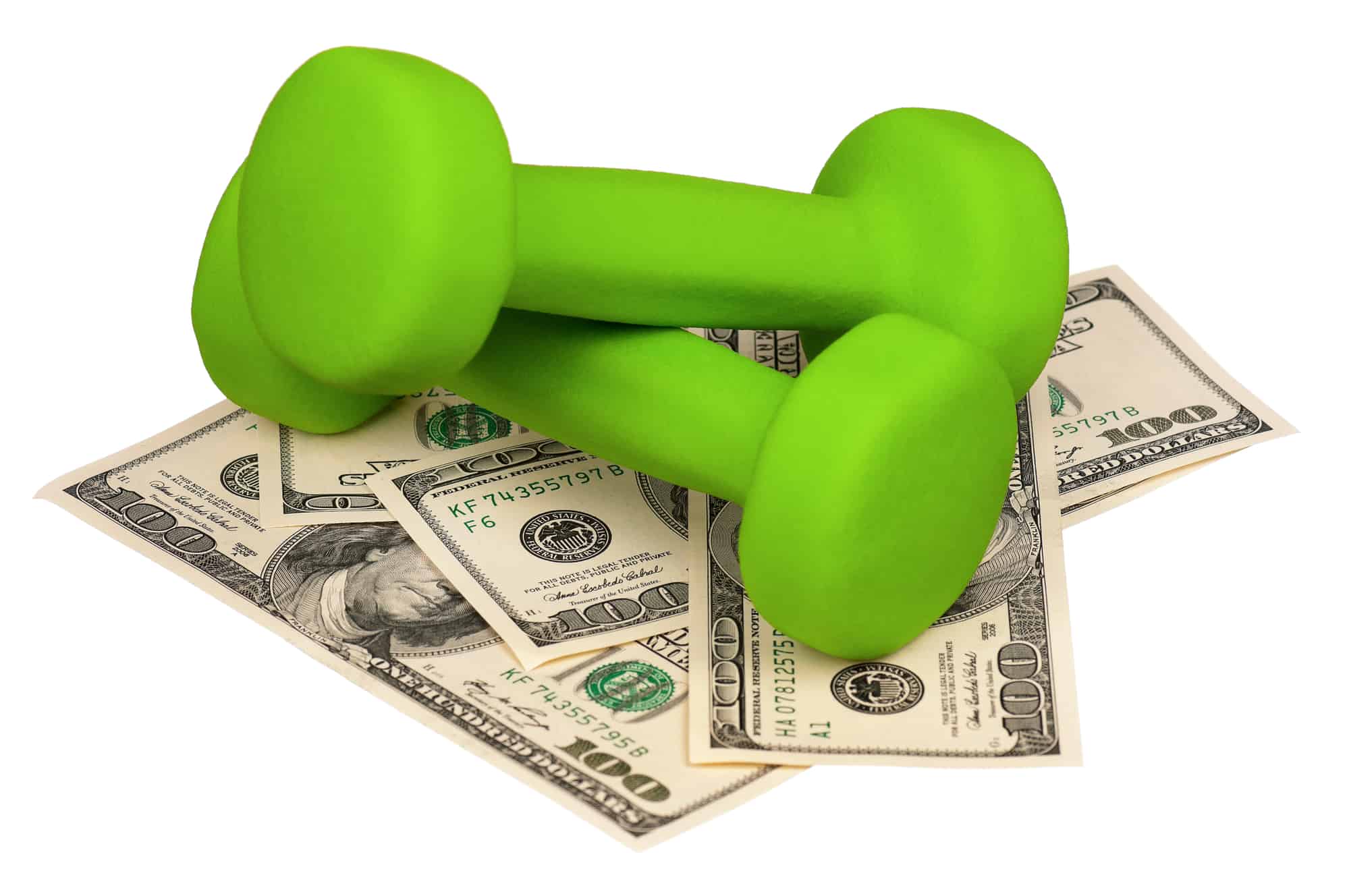Wealthtender is a trusted, independent financial directory and educational resource governed by our strict Editorial Policy, Integrity Standards, and Terms of Use. While we receive compensation from featured professionals (a natural conflict of interest), we always operate with integrity and transparency to earn your trust. Wealthtender is not a client of these providers. ➡️ Find a Local Advisor | 🎯 Find a Specialist Advisor

We all want to be financially secure, but if 2022 taught us anything, that’s easier said than done. You may want to make more money, or maybe you want to pay off outstanding debt. Regardless of your goals, one thing remains the same: you need a strategy to reach your goals.
It’s easier to create a financial strategy than to do it. Even with the best intentions, the risk is that you fall off the savings wagon and spend the money you were supposed to save. Fortunately, that doesn’t have to be the end of your saving plan.
8 Ways to Get Financially Fit
Are you in good financial shape? If you’re not sure, don’t worry—you’re not alone. Many people have difficulty understanding their financial situation and what they can do to improve it.
But just like physical fitness, financial fitness is essential for your overall well-being. And luckily, it’s something you can achieve with a little effort and planning.
Here are eight ways to get financially fit in 2023.
Determine Your Why
Another one of the reasons people fail at saving money is that they really can’t pinpoint their why. Sure, they want more money to spend, but what about the bigger picture? Yes, this is when the bigger picture comes into play. Successful financial strategies encompass short- and long-term goals, so you need to think about where you want to be in the immediate future and down the road. Think about how getting your finances under control now will impact your future. If you wish to buy a new car or your first house, your choices today will impact your tomorrow.
Celebrate Small Wins
One of the main reasons for budgeting fails is that people only look for major wins. They lose sight of the fact that small wins matter. While looking at the big picture and having high expectations is tempting, not celebrating the smaller wins can set you back.
If you’ve been paying off your student loans, you could research what it takes to refinance student loans from college. When you refinance, you save money on interest and may be able to pay your loans off faster.
The money you save can be put in a savings account, applied towards other debt, or even put on the principal. Setting smaller goals, like refinancing your loans for a lower rate, can motivate you to save more. It can also help lighten the emotional load of not having enough money to pay other bills.
Lower Your Debt Overall
Another common mistake is focusing on just one issue. Consider your cash flow and determine where your money is going. For example, is rent eating a large chunk of your paycheck? If so, you may want to move somewhere cheaper. Or are you planning an Italian dream holiday? If so, trust me, Italy will be there after you pay your debt.
A good rule of thumb is to stop hiding from debt and prioritize paying it off. Cut back on the non-essentials, such as eating out and coffee drinks, and look for ways to save in the grocery store. You can cancel your gym membership and work out at home.
Stop Using Your Credit Cards
Nothing adds unnecessary interest like credit card debt. Unless you have a super-low rate, you should avoid paying with plastic. As convenient as credit cards are, they can also eat up your savings, especially if you only pay the monthly minimum. You then get caught in a perpetual cycle of only paying the bare minimum without touching the interest.
If the interest rate is high, contact the card issuer and ask if you’re eligible for a lower rate. You can also ask about balance transfer cards to pay off higher-interest debt. Balance transfer cards often come with low/zero interest rates for up to 18 months. By taking advantage of such a promotion, the balance transfer card could allow you to pay off credit card debt much faster – and save you thousands in interest.
Set a Realistic Limit
Just like overspending, underspending can also be problematic. Not allowing yourself to enjoy the little things can lead to impulse buying. It’s better to set a limit on how much you spend and stick with it. If you usually head to happy hour on Fridays, take out just enough cash to cover a drink and something to eat. Doing so lets you do what you like without worrying about overspending.
Consider this method in other situations. At the grocery store, only buy what’s on your list. Take a set amount of cash and leave your cards at home. Add up the items and stop when you run out of money. This strategy saves money and helps avoid buying things on a whim.
Bundle Your Insurance
You can still bundle your insurance needs even if you’re a renter. If you have a car, you can ask your insurance carrier if you get a discount for bundling the renter’s coverage with your car insurance. You can combine this with your car coverage if you’re a homeowner.
Buy Generic and Clip Coupons
Gone are the days when generic brands aren’t as good as name brands. Many generic brands are just as good as the real ones, if not better. Look for generic brands in the supermarket when buying pantry staples. When you think about it, spending double on rice, pasta, beans, or paper goods doesn’t make sense when the generic brands are just as good. On that same token, use coupons whenever possible. Most stores will accept competitor coupons and even double them in some cases. The key is to use them when those products are on sale. You can buy in bulk and still save money.
Buy More Clothes
Spending money on clothes might sound counterproductive. However, that’s simply not true. When you have more clothes, you don’t need to wash them as often. That can help you save on your monthly utilities, such as water, gas, and electricity. Be sure to buy pieces you can mix and match easily and wear more than once before they need to be washed.
The Takeaway
Are you tired of being in debt? Do you want to take control of your finances and be financially free? If so, then it’s time to get financially fit.
Being financially fit means having a good handle on your money. You know where your money is going, and you’re not afraid to make changes to ensure that your money is working for you. It also means having an emergency fund in place to prepare you for anything life throws your way.
It takes work, but it’s worth it. Once you control your finances, you’ll feel more relaxed and confident about your future. Start taking steps today to get fit and control your finances.
Are you ready to enjoy life more with less money stress?
Sign up to receive weekly insights from Wealthtender with useful money tips and fresh ideas to help you achieve your financial goals.
Wealthtender is a trusted, independent financial directory and educational resource governed by our strict Editorial Policy, Integrity Standards, and Terms of Use. While we receive compensation from featured professionals (a natural conflict of interest), we always operate with integrity and transparency to earn your trust. Wealthtender is not a client of these providers. ➡️ Find a Local Advisor | 🎯 Find a Specialist Advisor







